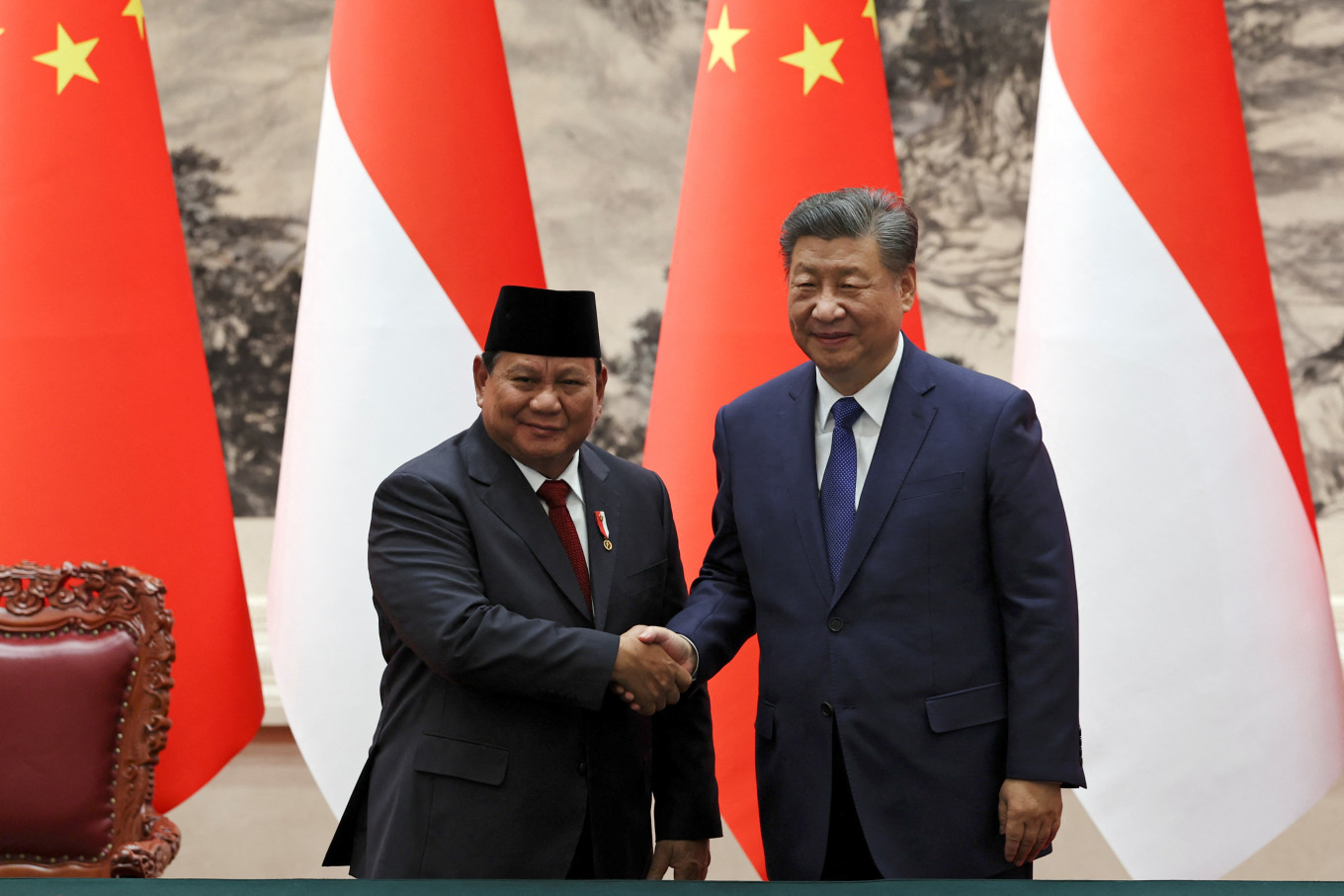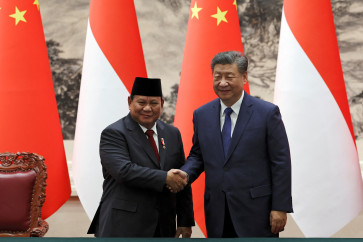Popular Reads
Top Results
Can't find what you're looking for?
View all search resultsPopular Reads
Top Results
Can't find what you're looking for?
View all search resultsPrabowo’s great power politics pivot takes center stage
The decision to pursue “joint development” in disputed areas signals a prioritization of diplomatic negotiation over assertive defense of sovereign rights under international law.
Change text size
Gift Premium Articles
to Anyone
P
resident Prabowo Subianto’s inaugural visit to China underscores a pivot toward great power diplomacy, a strategic approach that may mark a significant departure from Indonesia’s traditional stance more closely resembling what is now referred to and discussed as “middle power diplomacy.”
Over the weekend, Prabowo met with key Chinese leaders, including Zhao Leji, chairman of the Standing Committee of the National People's Congress, Premier Li Qiang, and finally, President Xi Jinping. The visit yielded several notable agreements, such as a US$10 billion investment pledge between the countries and several memorandums of understanding related to water conservation, the blue economy and maritime resources, and mining.
The joint statement issued by the leaders, titled “Promoting Comprehensive Strategic Partnership and Building a China-Indonesia Community with a Shared Future”, reflects Prabowo’s strategic framing of China as an essential partner.
From the various statements expressed by Prabowo, we can take a glimpse of how he stressed a multipolar world order, guided by principles like strategic autonomy, mutual trust, fairness and win-win cooperation.
Such a worldview indeed reflects the argument of the erosion of moral leadership by the very pole that has led the current global order, the United States, from unilateral protectionist policies, lack of appetite for all things multilateral, all the way to the moral quandary in the conflict in the Middle East.
Yet one aspect of this trip has raised concerns both domestically and internationally. For the first time, Indonesia acknowledged the existence of “overlapping claims” with China in the joint statement.
One article in the joint statement, namely Part 9 on maritime cooperation, reads: “The two sides reached important common understanding on joint development in areas of overlapping claims and agreed to establish an Inter-Governmental Joint Steering Committee to explore and advance relevant cooperation based on the principles of mutual respect, equality, mutual benefit, flexibility, pragmatism, and consensus-building, pursuant to their respective prevailing laws and regulations.”



















